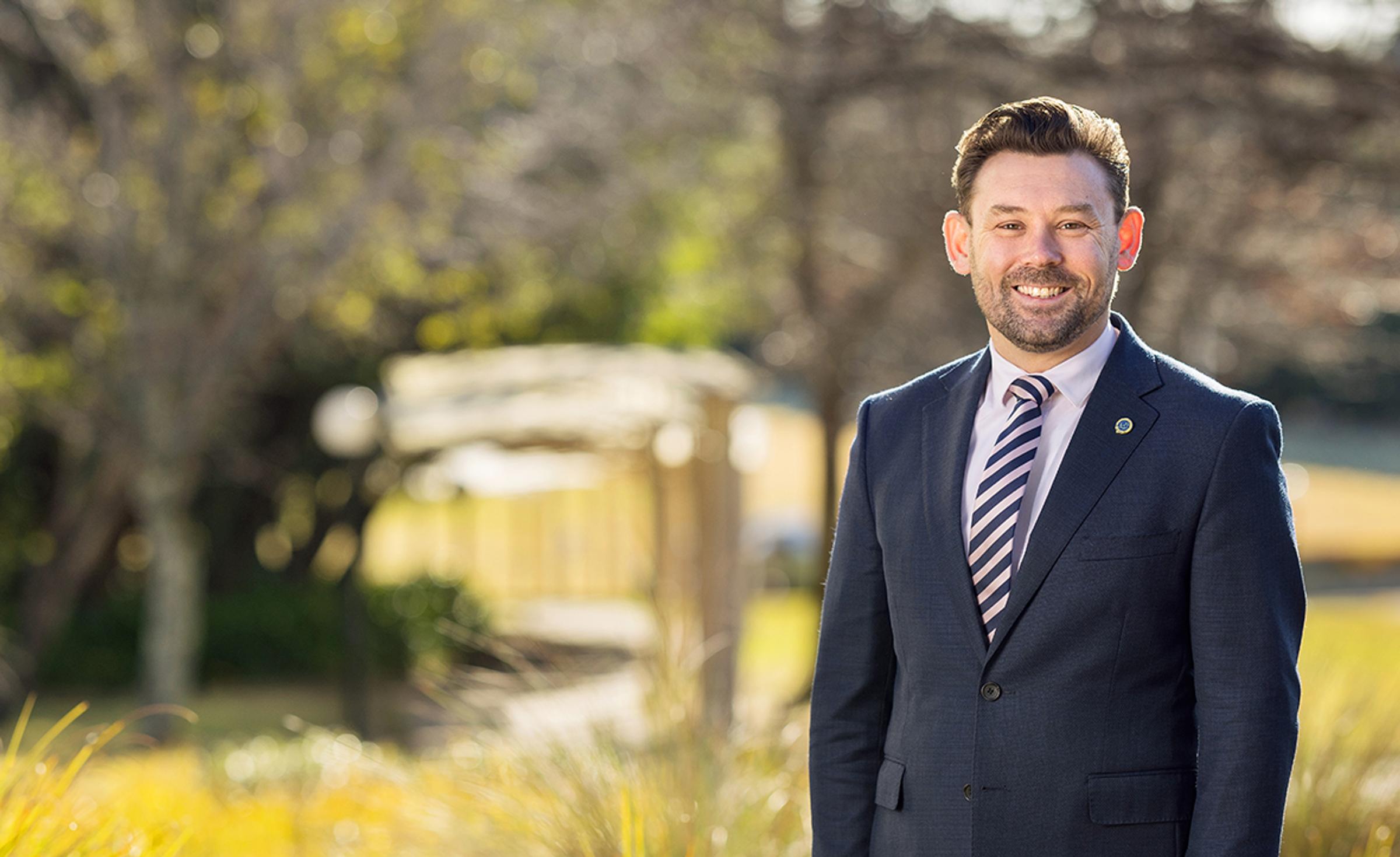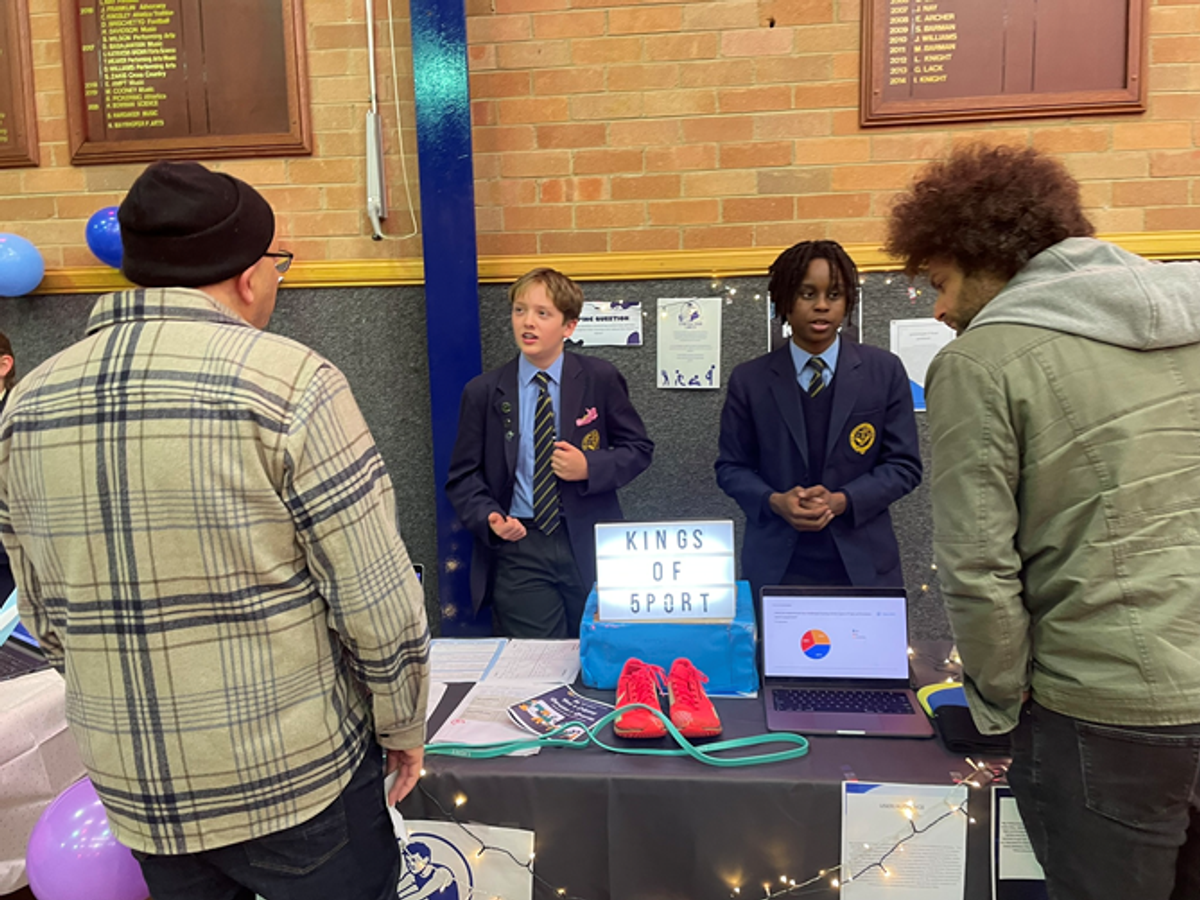From the Director of Strategic Initiatives

Beyond the Plan: Why Preparation Matters More Than Ever in Schools
Year 8 Showcase: Wolfie and Audius’ projects looked at physiotherapy for teenagers and the accessibility of athletics equipment for families.
One of the parts of my job I enjoy the most is the variety across my weeks. I have a Year 11 tutor group for the first 25 minutes of each day, and teach Years 7, 8 and 9. I am at the Springwood junior school campus on a Thursday and am at the Wentworth Falls junior campus on a Monday morning. A significant amount of my work is with teachers inside and outside the school focusing on professional development school improvement.
In all this, one thing is certain: Unpredictability. Be it a sudden weather event, a teacher sick at the last minute, a technology glitch, or simply a discussion that takes an unexpected turn, BMGS, like all schools are dynamic, fast-moving, ever-shifting environments. In such spaces, our people need more than a detailed plan. They need to be prepared.
Over the last week Year 7 and Year 8 have held their respective Project Based Learning Showcase nights. They built trade stalls, developed marketing collateral, baked treats and generated prototype solutions to different problems. Year 7 were working in groups and quickly learned that group work can be unpredictable and difficult. Group members were off sick, people had not finished their part of the project and aspects they thought were locked down, were in fact very far from completion. It was a great opportunity to explore the differences between planning and preparation and why, especially in times of high pressure, preparation proves more valuable.
So, what’s the difference?
Planning is about structure. We create a roadmap of what we intend to do, step-by-step. It’s often rigid, assuming things will go exactly as outlined. But as some of the Year 7 and 8 students have seen, life rarely works that way, especially in schools. In contrast, preparation is about mindset and adaptability. It means having the skills, the awareness, and the confidence to adjust when the original plan falls down.
In talking with students about this we use phrases like ‘getting yourself ready to respond, not just follow instructions.’ It’s less about controlling the outcome and more about building capacity to handle uncertainty. At school, this means helping students develop habits of thinking ahead, reflecting on past experiences, and building up a toolkit of strategies that allow them to thrive even when their plans fall through.
Some of the best writing I have come across on this topic uses the phrase ‘cultivating readiness.’ That is, readiness is an ongoing mindset and long game, rather than a single to-do list. This readiness gives students and adults the confidence to say, ‘I can handle this,’ even when things don’t go to script. It's what allows a student to calmly pivot when their group presentation goes off track or their science experiment doesn’t yield the results they hoped for. It’s also what helps teachers adjust mid-lesson when a teachable moment presents itself or technology fails.
This is reinforced when we recognise planning often assumes certainty, while preparation embraces change. In times of disruption, which school life frequently is, those who are best prepared, not best planned perform the strongest. This applies not only to students, but also to staff and leaders.
At Blue Mountains Grammar School, this means creating a culture that values flexibility, resilience, and self-awareness. It means building classrooms where students are encouraged to think critically, reflect on setbacks, and adapt their strategies. It means valuing growth over perfection, and learning over control.
We still teach planning skills, because they matter. But we place equal, if not greater, emphasis on preparing students to be resourceful, emotionally aware, and ready to adapt when needed. Good preparation doesn’t eliminate the unpredictable—it equips students to meet it with strength.
In a world and a school where things won’t always go as expected, let’s prepare our students not just to follow the plan, but to flourish without one.
Christopher Sanders
Director of Strategic Initiatives
